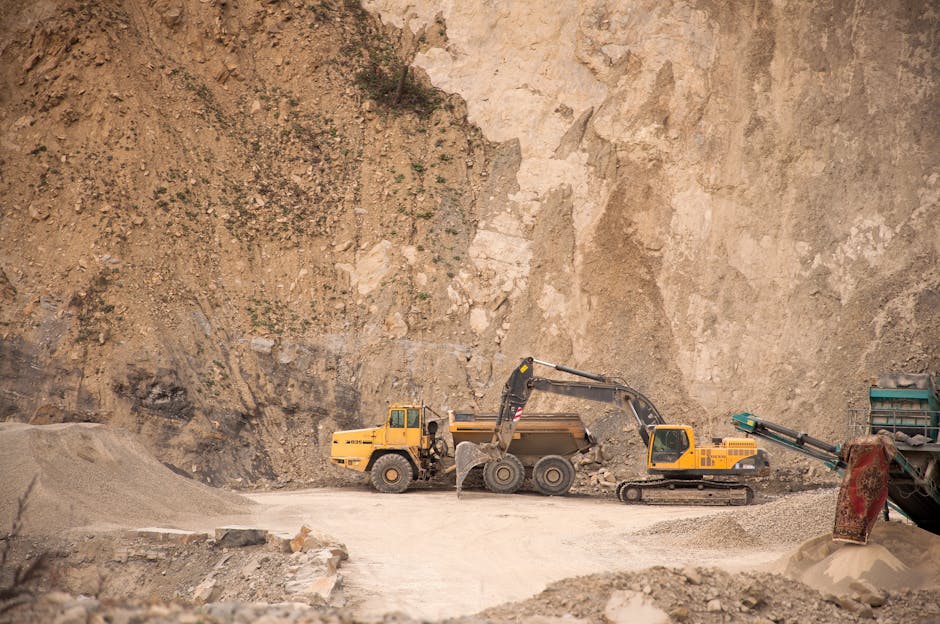The Dark Side of Tech: How Your Website Could Be Harming the Environment
Examining the impact of tech on the environment reveals that websites play a significant role in carbon emissions and energy usage due to server operations. This can harm the environment without sustainable practises. By focussing on server efficiency, renewable energy sources, and optimising algorithms, we can reduce the carbon footprint. Upgrading to energy-efficient hardware, implementing virtualisation techniques, and embracing green hosting solutions are vital steps toward a more sustainable tech industry. Solutions such as water-efficient server technologies and responsible internet usage also contribute to mitigating environmental harm. Discover more insights to make informed decisions for a greener digital future.
Key Takeaways
- High energy consumption from servers powering websites contributes to environmental harm.
- Carbon emissions from data centres hosting websites negatively impact the environment.
- Inefficient cooling systems in data centres increase carbon footprint.
- Water-intensive cooling systems in data centres strain environmental resources.
- E-waste from outdated hardware used in websites poses environmental risks.
Energy Consumption of Servers

Analysing the energy consumption of servers reveals important insights into the environmental impact of websites. By focussing on server efficiency and the use of renewable energy sources, we can greatly reduce the carbon footprint of online platforms. Server efficiency plays a vital role in minimising energy consumption. Upgrading to more energy-efficient hardware, optimising data processing algorithms, and implementing virtualisation techniques can all contribute to lowering energy usage. Additionally, utilising renewable energy sources such as solar or wind power can further diminish the environmental impact of server operations.
To improve the sustainability of websites, companies must prioritise server efficiency and renewable energy integration. This proactive approach not only benefits the environment but also alines with the values of users who are increasingly conscious of ecological issues. By investing in energy-efficient servers and shifting to renewable energy sources, websites can operate more responsibly and contribute positively to the overall sustainability of the digital landscape.
Carbon Emissions From Data Centres

Carbon emissions from data centres represent a significant environmental concern in the tech industry due to their substantial contribution to greenhouse gas emissions. Data centres consume vast amounts of energy, leading to high carbon footprints. To mitigate this impact, the implementation of renewable energy sources is important. Shifting to renewable sources such as solar or wind power can greatly reduce carbon emissions associated with data centres.
In addition to renewable energy sources, energy efficiency strategies play an important role in kerbing carbon emissions. Optimising cooling systems, consolidating servers, and utilising energy-efficient hardware are effective ways to reduce energy consumption and subsequently lower carbon emissions. Data centres can also employ advanced technologies like machine learning algorithms to optimise energy usage and improve overall efficiency.
Electronic Waste From Obsolete Hardware

As we consider the environmental impact of data centres, a pressing concern arises regarding the electronic waste generated from obsolete hardware in the tech industry. E-waste management is vital in mitigating the negative effects on the environment. The rapid pace of technological advancement leads to a high turnover of electronic devices, resulting in a significant accumulation of electronic waste. Implementing effective recycling programmes is essential to tackle this issue. By recycling obsolete hardware, valuable resources can be recovered, reducing the need for raw material extraction and energy-intensive manufacturing processes.
To address the electronic waste problem, tech companies can establish partnerships with certified e-waste recycling facilities. These facilities specialise in the proper disposal and recycling of electronic equipment, ensuring that hazardous materials are handled safely and efficiently. Additionally, promoting consumer awareness about the importance of recycling e-waste can encourage responsible disposal practises. By prioritising e-waste management and supporting recycling programmes, we can work towards a more sustainable and environmentally friendly tech industry.
Cooling Systems Impact on Climate

Our examination of the impact of cooling systems on climate reveals an essential aspect of the environmental footprint of data centres. The energy-intensive nature of data centres, necessary for cooling systems to maintain ideal operating temperatures, contributes greatly to carbon emissions. However, innovative solutions such as solar-powered servers and the development of green data centres offer promising alternatives to mitigate this impact.
Solar-powered servers harness renewable energy sources, reducing reliance on fossil fuels and decreasing the carbon footprint associated with cooling systems. By utilising solar energy, data centres can operate more sustainably and lessen their environmental impact. Green data centres prioritise energy efficiency and environmentally friendly practises, incorporating advanced cooling technologies to minimise energy consumption. These initiatives not only benefit the environment but also promote a more sustainable approach to data management.
Embracing solar-powered servers and shifting to green data centres are vital steps towards reducing the environmental consequences of cooling systems in data centres. Embracing these innovative solutions can pave the way for a more environmentally conscious tech industry.
Mining for Rare Earth Metals

Exploring the environmental impact of mining for rare earth metals reveals an essential aspect of the tech industry‘s resource consumption and sustainability challenges. The extraction of these metals, vital for the production of various tech devices, often occurs in ecologically sensitive areas, leading to habitat destruction and water contamination. Environmental regulations play a pivotal role in mitigating these adverse effects by setting standards for responsible mining practises.
Ethical sourcing is another critical aspect to contemplate. Ensuring that rare earth metals are sourced ethically involves verifying that the mining operations adhere to fair labour practises and environmental standards. By supporting companies that prioritise ethical mining practises, we can encourage sustainable resource extraction and reduce the negative impacts on the environment.
To address the environmental concerns associated with mining for rare earth metals, stakeholders in the tech industry must work together to promote transparency, uphold environmental regulations, and prioritise ethical sourcing. By doing so, we can move towards a more sustainable and environmentally conscious approach to resource procurement.
Impact of Internet Traffic

Upon analysing the tech industry’s resource consumption patterns, the Impact of Internet Traffic emerges as a significant contributor to environmental concerns. Internet traffic, with its increasing bandwidth consumption and potential for congestion, poses challenges that demand attention. To grasp the scale of this issue, consider the following breakdown:
| Internet Traffic Statistics | Data |
|---|---|
| Global Internet Users | 4.66 billion |
| Daily Internet Traffic | 48,000 GB/s |
| Annual Bandwidth Consumption | 1.7 zettabytes |
The sheer volume of global internet users coupled with the daily traffic flow and annual bandwidth consumption highlights the immense impact on the environment. With this level of online activity, internet traffic congestion becomes a pressing issue, leading to inefficiencies and higher energy usage in data centres to handle the load. To address this, optimising data delivery, employing efficient routeing strategies, and promoting responsible internet usage can help mitigate the environmental repercussions of internet traffic.
Water Usage in Data Centres

Data centres play an essential role in the digital world, but their high water consumption poses environmental challenges. Implementing water-efficient server technologies could greatly reduce the water footprint of these facilities.
Data Centre Cooling
In modern data centres, the essential management of water usage for cooling systems is vital to minimise environmental impact and enhance sustainability. Data centres rely on cooling systems to maintain ideal operating temperatures for servers and equipment. Energy efficiency plays a key role in reducing water consumption for cooling purposes.
By implementing renewable resources such as solar or wind power to run cooling systems, data centres can greatly decrease their reliance on water-intensive cooling methods. Monitoring and optimising cooling infrastructure, like using advanced cooling techniques and airflow management, can also contribute to water conservation efforts.
Prioritising energy-efficient practises in data centre cooling not only benefits the environment but also promotes long-term sustainability in the tech industry.
Water-Efficient Server Technologies
Enhancing water efficiency in server technologies is paramount for reducing the environmental impact of water usage in data centres. When considering server efficiency, opting for green hosting solutions can greatly decrease water consumption. By utilising innovative cooling technologies and optimising data centre layouts, water usage can be minimised without compromising performance.
| Green Hosting Solutions | Benefits | Implementation |
|---|---|---|
| Utilising Water Recycling Systems | Reduces overall water consumption | Instal water recycling systems in data centres to reuse water for cooling purposes. |
| Implementing Air-Cooled Servers | Decreases reliance on water for cooling | Adopt air-cooled servers that are more energy-efficient and require less water for cooling. |
| Virtualisation of Servers | Lowers water usage through consolidation | Virtualise servers to reduce the number of physical machines, leading to lower water requirements for cooling. |
Sustainable Web Hosting Solutions

Opting for sustainable web hosting solutions can greatly reduce the environmental impact of websites. By choosing providers that prioritise green energy and renewable resources, we can make a significant positive difference. Green energy sources such as solar, wind, and hydroelectric power can help minimise the carbon footprint associated with hosting websites. These energy sources are renewable and have a lower environmental impact compared to traditional fossil fuels.
One key advantage of sustainable web hosting is the reduction in greenhouse gas emissions. By using renewable energy sources, servers can operate without contributing to climate change. Additionally, sustainable hosting solutions often involve energy-efficient practises and technologies that further decrease environmental harm.
When selecting a web hosting provider, look for certifications or statements confirming the use of green energy sources. Many companies now offer eco-friendly hosting options, making it easier for website owners to make a positive environmental choice. By supporting sustainable web hosting solutions, we can actively work towards a greener digital future.
Frequently Asked Questions
How Can Individuals Reduce Their Carbon Footprint While Browsing the Internet?
To reduce our carbon footprint while browsing the internet, we can adopt sustainable browsing habits like using energy-saving settings and supporting websites hosted on green data centres. These small changes can make a big impact on the environment.
Are There Any Eco-Friendly Alternatives to Traditional Web Hosting Services?
When seeking eco-friendly alternatives for web hosting, consider green hosting providers. These companies utilise sustainable servers and renewable energy sources to reduce environmental impact. Making this choice collectively can greatly decrease our carbon footprint.
What Measures Can Data Centres Take to Minimise Water Usage?
To minimise water usage, data centres must implement cutting-edge technologies like water recycling and efficient cooling systems. By harnessing renewable energy sources, we can drastically reduce our environmental impact and pave the way for a sustainable future.
How Does Internet Traffic Contribute to Environmental Degradation?
Internet traffic has a substantial impact on the environment through high energy consumption and inadequate e-waste management. Optimising data centres, promoting energy-efficient practises, and encouraging responsible disposal of electronic devices can help alleviate these harmful effects on our planet.
What Are the Ethical Implications of Mining for Rare Earth Metals in Tech Production?
Ethical sourcing of rare earth metals in tech production is vital. Mining practises can have severe environmental impacts. We must prioritise sustainable methods to reduce harm. Our choices today shape tomorrow’s world.
Conclusion
To sum up, the environmental impact of our websites and digital platforms can’t be ignored. From energy consumption to electronic waste, every aspect of tech has a toll on the planet.
As the saying goes, ‘we don’t inherit the Earth from our ancestors, we borrow it from our children.’ It’s imperative that we prioritise sustainable practises in web hosting and design to minimise our carbon footprint and preserve our planet for future generations.
Contact us to discuss our services now!
